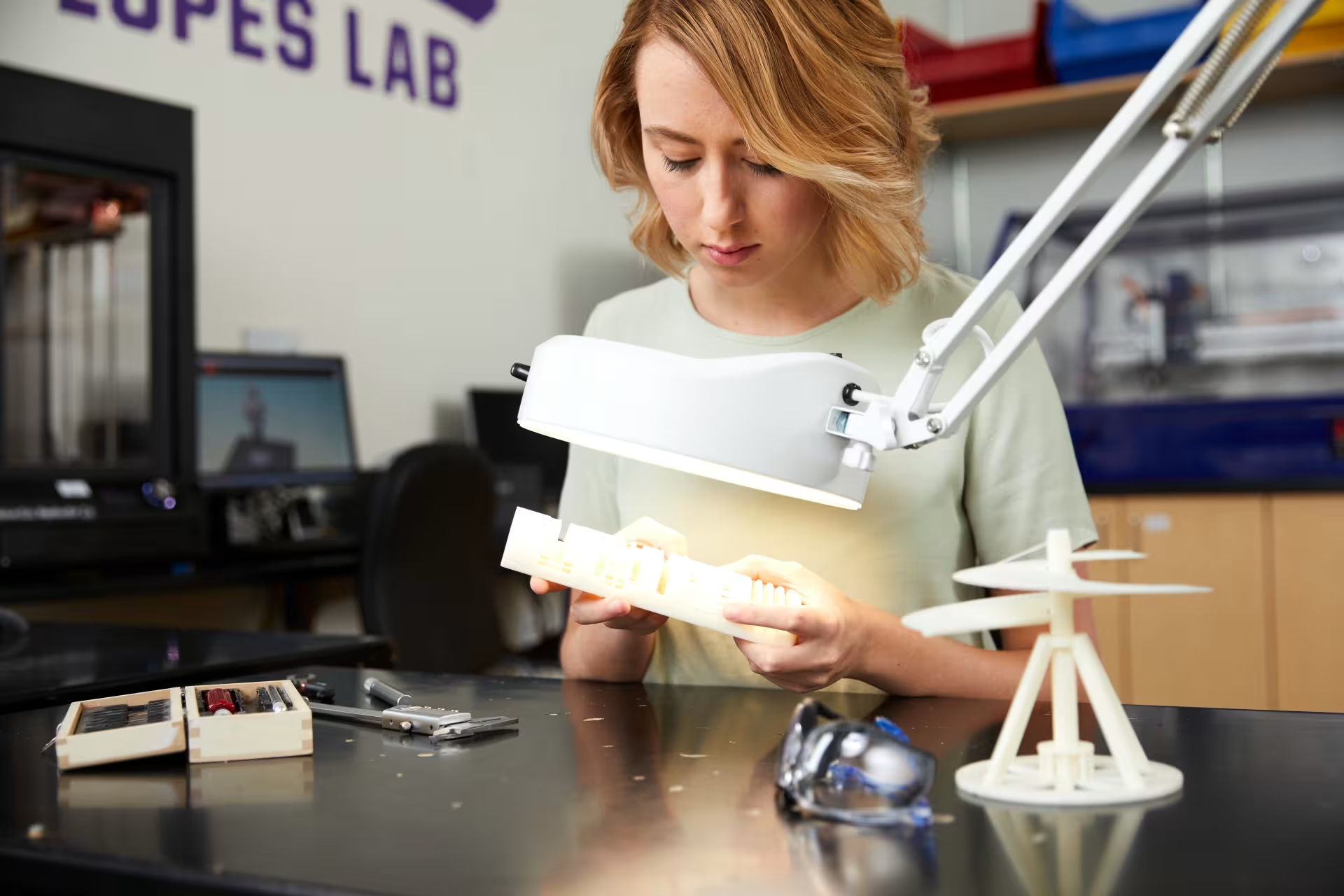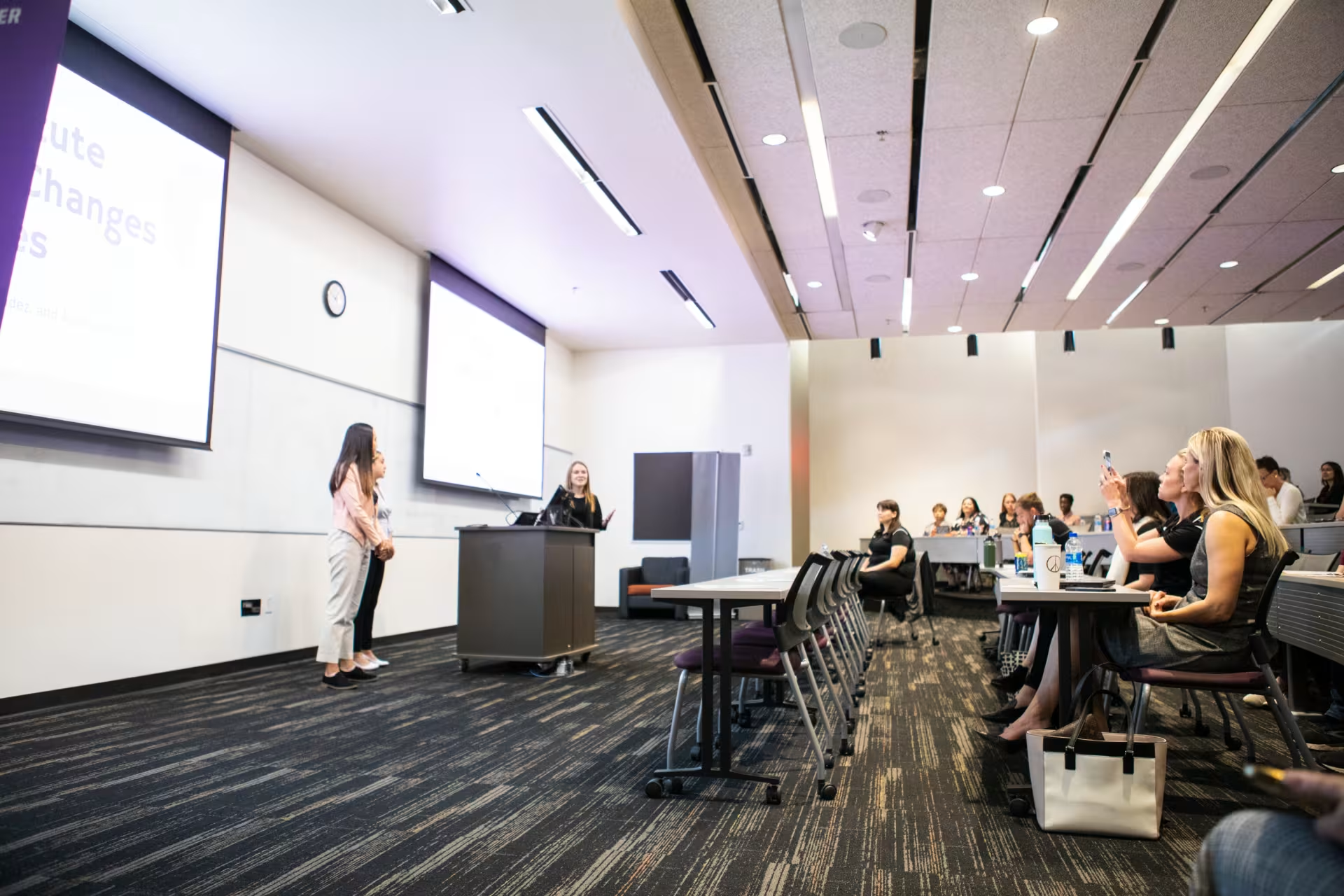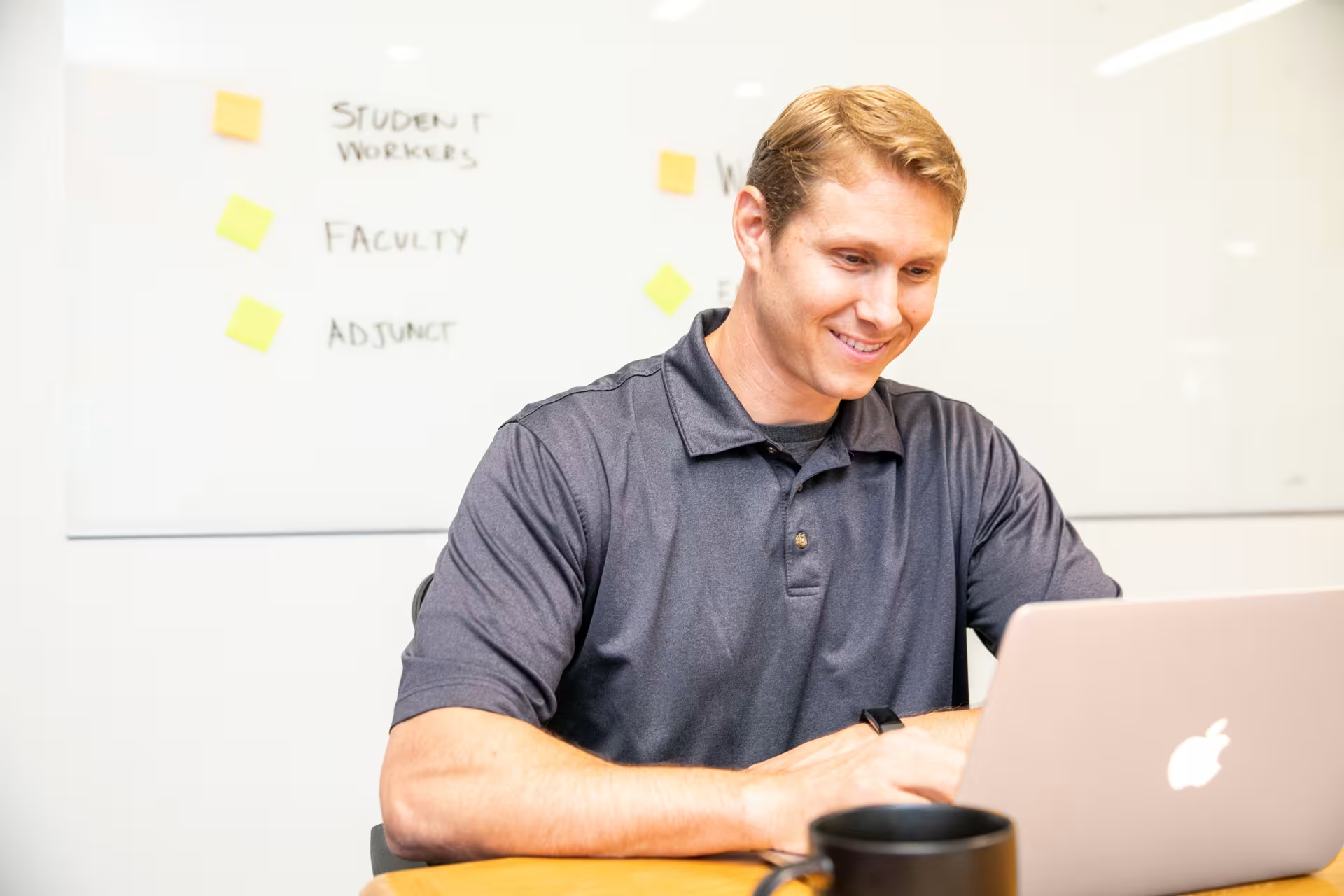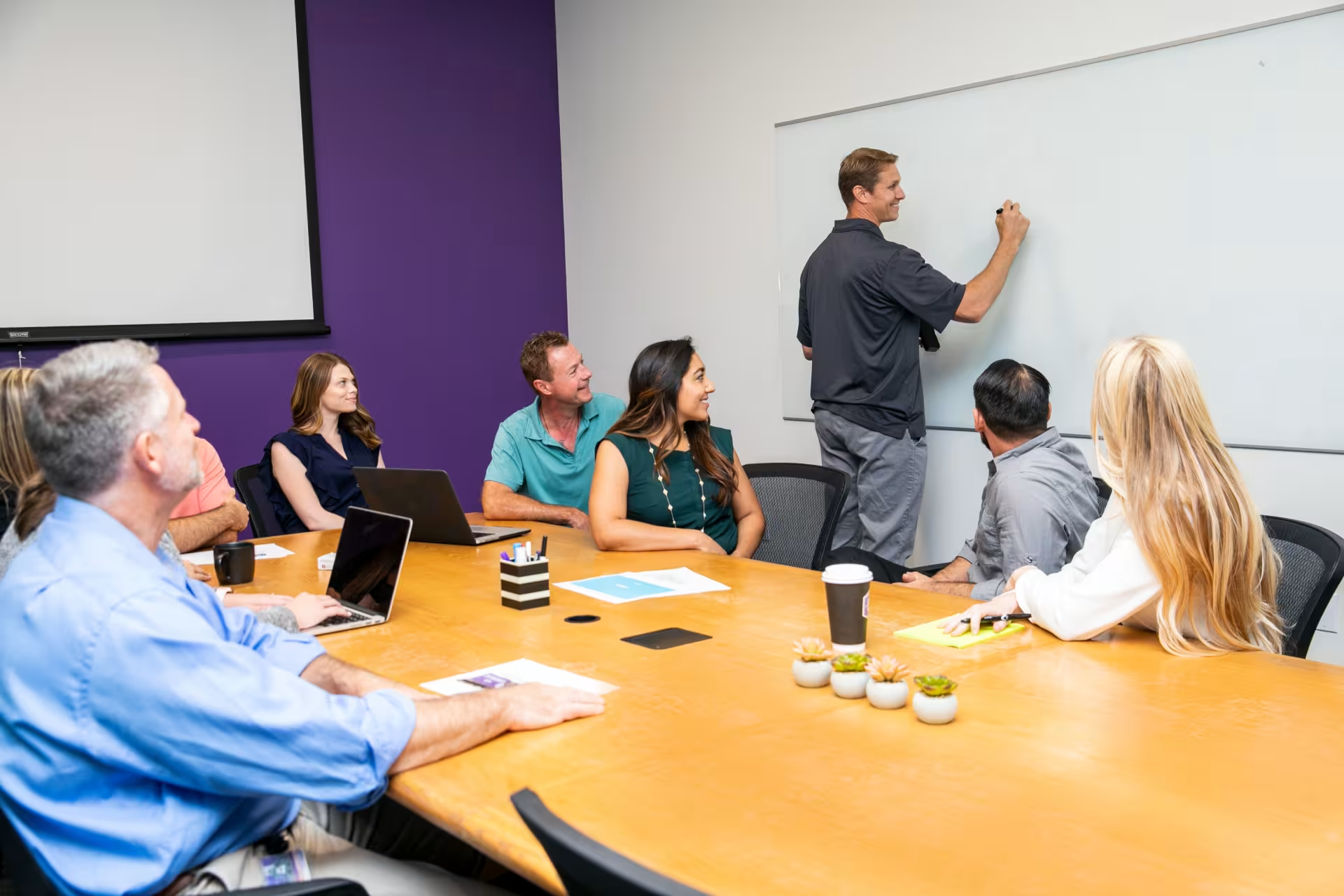
GCU’s College of Engineering and Technology Research Topics
College of Engineering and Technology
Use this menu to discover more about the College of Engineering and Technology and its resources.
Explore Research Opportunities
The College of Engineering and Technology at Grand Canyon University offers opportunities for research in engineering and technology fields. Engage in projects, labs and workshops that provide a stimulating environment to satisfy your intellectual curiosity and foster innovation in the following areas:
- Aerospace engineering
- Artificial intelligence (AI)
- Biomechanics
- Biomedical engineering
- Cloud computing
- Computer science
- Cybersecurity
- Embedded development and systems
- Machine learning (ML)
- Microgravity
- Prototype medical and non-medical equipment
- Robotics
- Virtual reality (VR)
"The engineering shops are available to everyone and even non-engineering students are welcome. I could go in and get hands-on experience on my own. I talked to one of the professors on my Discover trip and definitely got a strong feeling that GCU wanted to foster my progress and see me succeed."
"I thought they [GCU workshops] would only be for people who are taking specific classes. At GCU I could use the equipment whenever I wanted to and work on my own projects! I’ve never had an opportunity like that before."
"The engineering shops are available to everyone and even non-engineering students are welcome. I could go in and get hands-on experience on my own. I talked to one of the professors on my Discover trip and definitely got a strong feeling that GCU wanted to foster my progress and see me succeed."
"I thought they [GCU workshops] would only be for people who are taking specific classes. At GCU I could use the equipment whenever I wanted to and work on my own projects! I’ve never had an opportunity like that before."
"The engineering shops are available to everyone and even non-engineering students are welcome. I could go in and get hands-on experience on my own. I talked to one of the professors on my Discover trip and definitely got a strong feeling that GCU wanted to foster my progress and see me succeed."
"The engineering shops are available to everyone and even non-engineering students are welcome. I could go in and get hands-on experience on my own. I talked to one of the professors on my Discover trip and definitely got a strong feeling that GCU wanted to foster my progress and see me succeed."

Canyon Emerging Scholars Program
Canyon Emerging Scholars (CES) is a program that empowers students in the College of Engineering and Technology to engage in forward-thinking research alongside faculty mentors. Rooted in the Boyer model of scholarship, CES encourages innovation through applied, integrative and discovery-based projects. You will have the opportunity to tackle practical challenges using advanced technologies, interdisciplinary thinking and hands-on experimentation.
Explore opportunities to contribute to high-impact research through these specialized labs and programs:
Aerospace Propulsion and Engineering Innovation Program
Design and test propulsion systems while exploring next-gen aerospace technologies.
Applied Biomedical Engineering Lab
Develop medical devices and solutions that merge biology with engineering principles.
Automotive Radar Research Lab
Build and analyze radar systems to advance autonomous vehicle safety and performance.
Computational Science Exploratorium
Apply algorithms and simulations to solve complex engineering problems across domains.
Cybersecurity for Artificial Intelligence
Investigate AI vulnerabilities and engineer secure systems for intelligent technologies.
Electronics Additive Manufacturing Lab
Prototype electronic components using 3D printing and explore emerging fabrication methods.
Hybrid Rocket Design
Construct and launch hybrid rockets while learning propulsion mechanics and safety protocols.
Intelligent Systems Lab
Program and test smart systems, including robotics, automation and machine learning applications.
Labellelabs Engineering
Collaborate on interdisciplinary engineering projects focused on innovation, design and prototyping.
Scholars and Research Publications
GCU offers research on technology and engineering, including teaching publications that can facilitate excellence and foster growth among students, through faculty-driven initiatives and services that foster a community of learning and opportunity.

The Center for Innovation and Research On Teaching (CIRT) supports the development of creativity and critical thinking across a wide range of scholarly disciplines. This faculty-driven organization’s goal is to advance excellence in an integrated group of educators.

The CIRT publishes the Journal of Instructional Research (JIR) online annually. You can discover how to apply for grants, prepare for technology research projects, learn best practices in the profession of teaching, address engineering problems for students and more.

The Institutional Review Board (IRB) ensures that all research sponsored by GCU complies with federal regulations and meets the highest ethical standards. Find out how the IRB monitors and reviews research.

Fuel your curiosity, build breakthrough solutions and lead innovation — get involved with research within the College of Engineering and Technology.

